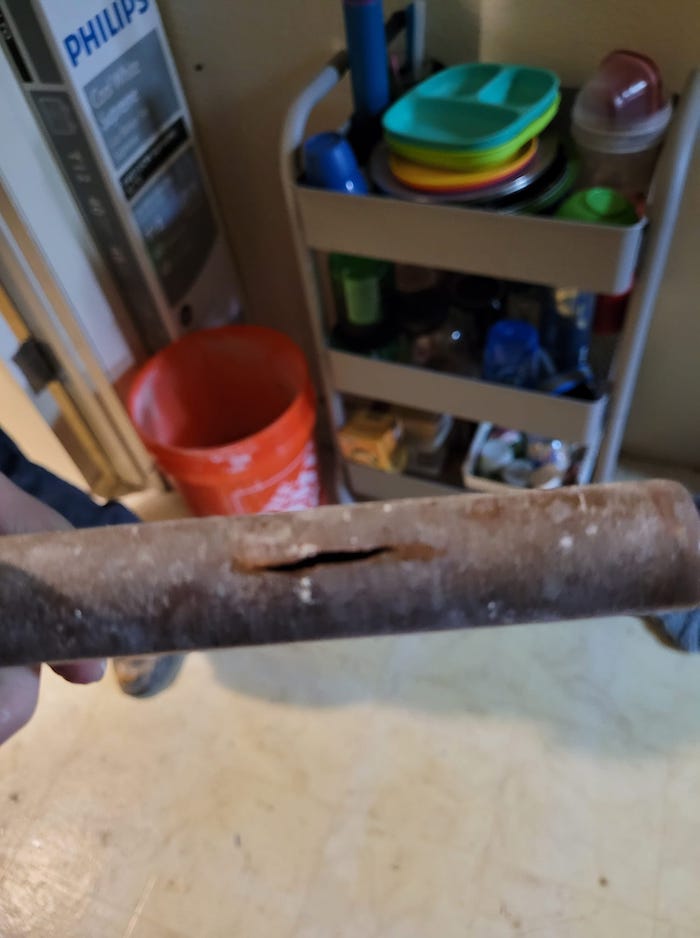There are several steps we need to take in our homes in Colorado to protect from winter temperatures. Just like we top off the anti-freeze and freeze proof windshield wiper fluid in our cars, there are actions needed to keep our plumbing, irrigation and HVAC systems safe. Read on for plumbing tips for winter so you can protect your home during colder months. You’ll want to make sure to take action on these plumbing tips before the first freeze hits. Ideally, you would have these completed before the middle of October. Keep reading for several helpful tips that will save you money and damage to your systems.
- Hose bibs and water spigots: Remove your outside garden hoses from your hose bibs/spigots. Even freeze proof hose bib and water spigots will freeze and break and cause flooding if they are not taken care of during winter months. The best way to keep hose bibs from leaking in and around Denver is to remove hoses and keep them off. You can also purchase a foam temperature protectant to place over your hose bib for extra caution. If you put the hose back on the spigot to use it, you will need to remember to remove it again to prevent damage when temperatures fall again.
- Pressure vacuum breaker (sometimes also called back flow preventer): If you’re not familiar with what a pressure vacuum breaker is, it’s best known as what’s used to blow out your sprinklers. We’ll get to sprinklers later in this article. After you use it to blow out your irrigation system, it’s a good idea to wrap your vacuum breaker to keep it from freeze damage. You can use the DIY method by wrapping the vacuum breaker in a towel or two and placing a plastic bag around the towel and sealing with tape. They also sell wrappings at your local hardware store you can use to prevent your vacuum breaker from freezing and breaking like pictured below.
- Irrigation system: This one is pretty simple but will usually require an irrigation specialists help. You’ll want to have your sprinklers blown out to prevent damage to your system. The sprinkler blow out will be done using an air compressor. This is something you don’t want to wait on as irrigation specialists tend to get very busy around the months leading up to winter in and around Denver.
- HVAC: Get your swamp cooler or evaporative cooler winterized and shut down before the first freeze. These are water powered and will freeze and damage the unit if used during winter months. As it is getting cold you will also want to fire up furnaces, boilers or other heating units to ensure they are working and don’t need services or a tune up. Have your chimney serviced so you can safely use your fireplace. Make sure any outdoor HVAC units and equipment are winterized and prepared for cooler months as well. Clean any associated air vents and filters. And lastly, as many of these systems use gas and release carbon monoxide make sure all of your smoke detectors and carbon monoxide detectors are in good working condition with new batteries.
- Protect water pipes: The first thing you can do to keep your pipes from freezing, bursting and leaking is to keep a moderate temperature in your home. This will protect pipes in your from freezing temperatures. When it gets very cold, you’ll want to open up cabinets near water lines such as in kitchens and bathroom. This will keep the air near those pipes warmer. You can also slightly open faucets to let them drip. This will keep the water flowing and make it less likely that water will freeze inside pipes. If there are any exposed pipes in the basement or near outside walls you can apply heat tape that will turn on and heat pipes when they get too cold. You can also place space heaters in the colder areas of your home such as basements and near exterior walls. If you’re concerned about pipes in your home, you can always call a professional plumber to take a look and see what can be done to prevent pipe bursts and leaks.
We hope you’ve found these tips helpful and actionable. Don’t wait to get these action items completed. They will keep your plumbing, HVAC and irrigation systems save from the winter temperatures. If you have any questions, Drain Terrier is always happy to help. Give us a call at 720-999-6120

